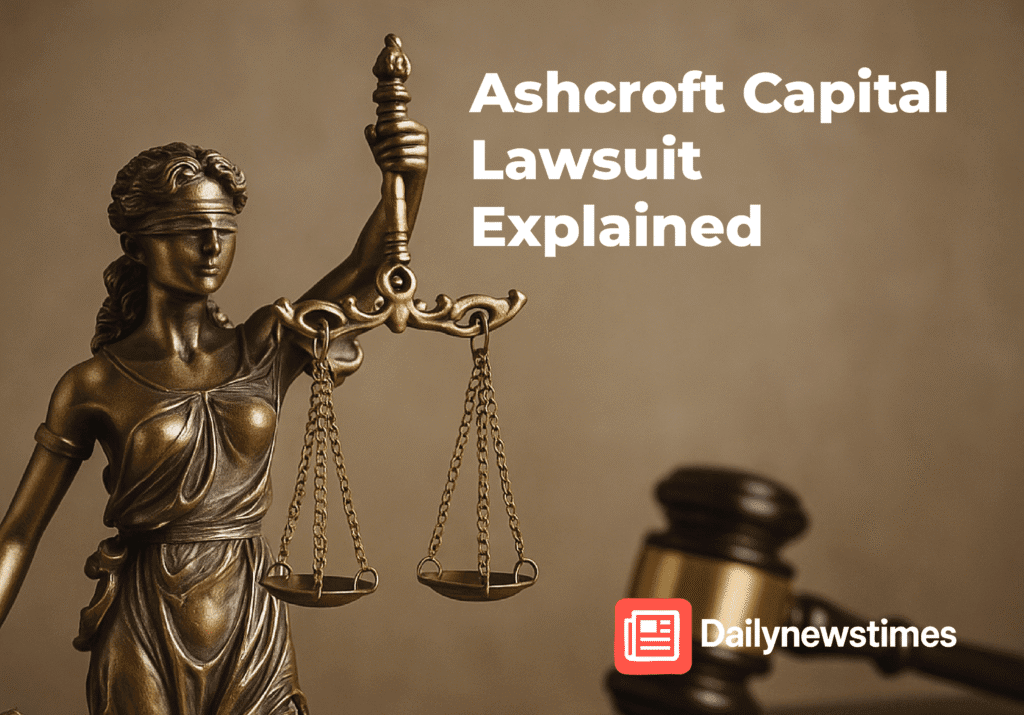If you’re into real estate—or even just scroll financial Reddit every now ‘n then—there’s a good chance you heard about the Ashcroft Capital lawsuit. It’s been makin noise in investor circles, and honestly, it’s more than just another dry legal dispute. This one involves lots of folks, some lost dollars, and a bunch of promises that maybe—just maybe—weren’t delivered like they was supposed to.
So, let’s break it down together, shall we?
What Is Ashcroft Capital and Why Should You Care?
Ashcroft Capital, co-founded by Joe Fairless, is (or maybe was?) a big name in real estate syndication. That basically means: they gather money from multiple investors, buy large apartment complexes—like, 200+ unit deals—and then manage it on behalf of those investors. The idea is that you give them your cash, and they do all the work while you sit back and collect passive income.
Atleast, that was the dream. But the reality ain’t been so dreamy lately.
What’s Going On With the Ashcroft Capital Lawsuit?
So here’s the scoop: A bunch of investors have come forward sayin’ they were misled. They claim that Ashcroft:
- Overhyped returns
- Didn’t clearly explain risks
- Misused investor funds
- Disappeared or gave vague answers when things went south
According to Axis Intelligence, several lawsuits have already been filed, accusing the firm of everything from breach of fiduciary duty to straight-up fraud. Ashcroft denies most of it, but let’s be real—the optics ain’t great.
Overpromising While Underperforming?
One of the loudest complaints came from passive investors who were promised a 17–20% internal rate of return (IRR), but instead, they saw lil’ to no income at all. Some claim they ain’t seen a single cent since investing—months ago.
Others say the project updates were always positive—even when behind the scenes, everything was falling apart.
Like… what’s the deal with that?
Red Flags That Had People Worried
Alright, let’s talk red flags—things that shoulda made folks go “uhhh, wait a sec…”
1. Too-Good-To-Be-True Projections
Some say the financial forecasts in the Private Placement Memorandum (PPM) were a lil’ too sunny. Sure, they disclosed risks (like, technically), but they buried them in pages of fine print. That’s kinda like handing someone a parachute full of holes and saying “trust me, it works.”
2. Sketchy Communication
According to Cordless.io, many investors didn’t even know their deals were in trouble until they stopped gettin’ payments or found out through forums and Facebook groups. When you’re droppin’ tens of thousands of dollars into a deal, you’d expect better communication, right?
3. Use of Funds
One accusation is that money raised for specific properties was reallocated—meaning, they used investor cash for stuff that wasn’t exactly what they signed up for. That’s kinda shady, even if not technically illegal (yet).
Ashcroft’s Side of the Story
Ashcroft isn’t takin’ it lying down. They’ve said:
- They followed SEC rules
- The market (interest rates, inflation, all that) caused delays
- Investors were fully informed and just mad because returns didn’t meet expectations
Management Works published a breakdown where Ashcroft insists they always acted in good faith.
Why This Lawsuit Matters to You
Even if you ain’t directly invested in Ashcroft Capital, this story should matter—especially if you’re into real estate syndication, private equity, or even just passive income investing.
Trust in Syndicators Is Shaky Now
There’s been a slow erosion of trust in syndication platforms. When one of the “big names” gets dragged into court, people start second-guessing everyone.
This Could Shape Regulation
The SEC hasn’t dropped the hammer yet, but this kind of lawsuit often leads to changes—like stricter requirements for how firms present data to investors.
What Should You Do if You’re an Investor?
If you’ve invested in Ashcroft or another syndicator, don’t panic—but don’t just sit there either.
- Double check your documents – Especially the PPM and investor agreements.
- Join forums like BiggerPockets or Reddit to hear what other folks are sayin’.
- Talk to a lawyer, especially if you’re thinkin’ about joinin’ a class-action.
- Diversify—don’t put all your eggs in one deal or one sponsor.
Pros and Cons of the Lawsuit
| ✅ Pros | ❌ Cons |
|---|---|
| Might bring more transparency | Might drag on for years |
| Could protect future investors | Costly & stressful |
| Raises awareness of risks | May scare off new players |
FAQs About Ashcroft Capital & The Lawsuit
Q: Is Ashcroft Capital still active?
Yep, they’re still operating—but some say platforms like RealtyMogul and CrowdStreet ain’t promoting their deals anymore.
Q: Is Joe Fairless involved?
Yes. He’s a named co-founder and public face of the company, so he’s definitely part of this.
Q: Can I still invest with them?
Technically, yes. But after all this… would you?
Q: Was this criminal or civil?
Civil, for now. But if more stuff comes out, who knows?
Final Takeaway
The Ashcroft Capital lawsuit is a wake-up call. It shows that even high-profile sponsors with podcasts, newsletters, and fancy websites can stumble—or worse. If you’re a passive investor, this should remind you that due diligence ain’t optional. Read the fine print. Ask the hard questions. If something feels too good to be true… well, you probably already know.

